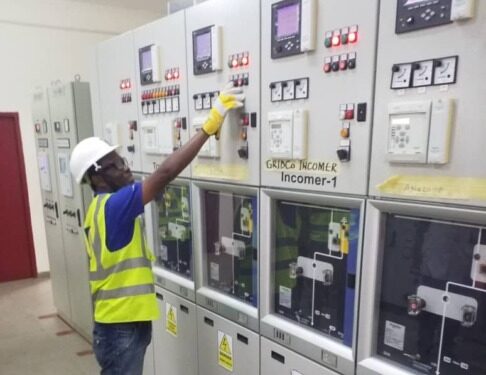The General Secretary of the Ghana Medical Association (GMA), Dr Richard Selormey, has criticised the Electricity Company of Ghana (ECG) for its stringent 72-hour ultimatum to 91 hospitals cautioning them to settle their outstanding bills or risk being disconnected.
According to him, the power distributing company’s 3-day window is insufficient for the health facilities to come up with the combined outstanding amount of GH¢261 million owed to ECG.
He further questioned the logic behind targeting the healthcare sector, whose debt owed contributes only 4.5% to ECG’s total debt.
“Why do you want to suck from the healthcare when bigger chunks are waiting?” the General Secretary quizzed.
“ECG needs to be realistic, the health facilities cannot pay the debt within the three-day ultimatum they have been given, and if they are actually going to disconnect, then they would have to disconnect all the facilities and we will all sit and watch what the government does,” he said on JoyNews’ PM Express.
ECG on Wednesday March 13, issued a notice to 91 hospitals in various parts of the country threatening to disconnect them from the national grid should they fail to settle their debt within 72 hours.
Among the notable hospitals facing potential disconnection are the Korle Bu Teaching Hospital, the 37 Military Hospital, Ridge Hospital in the Greater Accra region, Komfo Anokye and Manhyia Government Hospitals in the Ashanti region, Ho Teaching Hospital in the Volta region, and Kyebi Government Hospital in the Eastern region.
This move is part of ECG’s broader strategy to recover customer debts and strengthen its operational capacity.
Reacting to this, Dr Selormey warned that if ECG proceeds with disconnections at these health facilities, it would have significant repercussions for patient care.
Dr Selormey, therefore called on ECG to engage in further discussions with all stakeholders, urging the company to reconsider its ultimatum.
“The 72 hours, I think it is unreasonable and won’t be adhered to by anybody,” he said on Wednesday.
He stressed the need for transparency regarding the cost of healthcare, suggesting that if the government cannot fully cover these expenses, it should openly discuss cost-sharing measures with the public.
He further warned that any disconnections would be met with a unified response from the healthcare sector, and observers would closely monitor the consequences.


